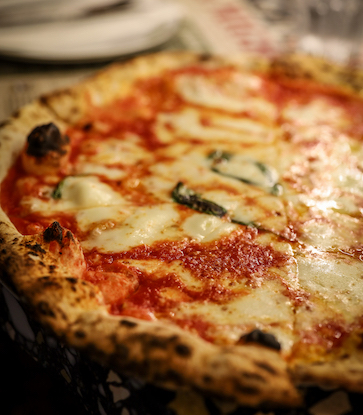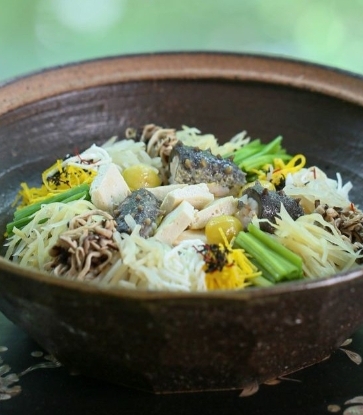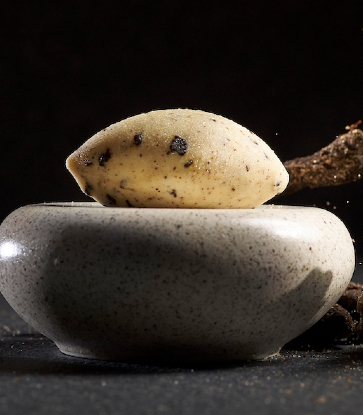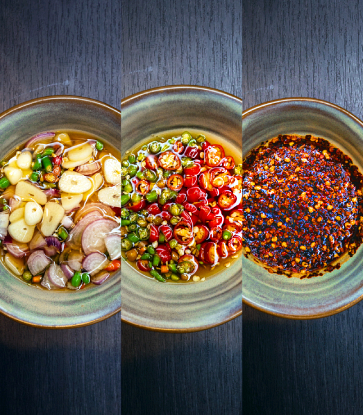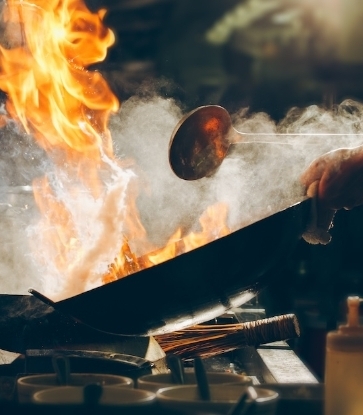So, you have been staying at home, either voluntarily or following government guidelines to shelter in place. Now, after countless delivery meals, you decide to try your hand at cooking with ingredients you had delivered or ventured out and bought. To help with your kitchen creations during these COVID-19 days, we asked three culinary gurus for their tips on cooking cleanly and safely like a pro at home.
Get your gear on and let’s get cooking.

Face masks are still important
In addition to wearing masks when outside, Chef Leelawat “Nan” Mankongtiphan from Cuisine de Garden (MICHELIN Plate, MICHELIN Guide Thailand 2020), Chiang Mai and Bangkok, suggests that masks should be worn in the kitchen as well. While there are no clear Thai government guidelines regarding food preparation, Dr. Aileen Marty, an infectious disease expert at FIU Health (Florida International University HealthCare Network), explained to NBC News Florida that the risk of contracting COVID-19 from food is extremely low, but there is still a risk, no matter how slight. Therefore, you shouldn’t overlook masks as protection in the kitchen. “Along with basic cooking hygiene, you should be wearing a mask for added safety while preparing a meal,” confirms Chef Nan.

Wash your hands even more often
“Thoroughly wash your hands with soap before preparing or eating food,” explains Chef Phanuphon "Black" Bulsuwan of Blackitch Artisan Kitchen (MICHELIN Plate, MICHELIN Guide Thailand 2020) in Chiang Mai, reinforcing childhood lessons from parents and teachers. “Before touching any food, you should wash your hands with soap and clean water for a longer time and more often than you used to. This includes washing your hands before and after handling different types of raw ingredients to avoid contamination and to maintain sanitary conditions,” adds Chef Nan.
Avoid eating uncooked foods
Even if the ingredients are the freshest and from extremely reputable sources, raw food fans should wait, especially during these summer months. According to the World Health Organisation (WHO), conventional cooking temperatures of above 70°C kills the coronavirus, so both Chef Black and Chef Nan urge everyone to avoid raw food. Because, in this health crisis, you should eat cooked meats and hot dishes. Refrigerated foods should always be reheated. This is for protection against viruses and bacteria, which grow even faster during Thailand’s hot season. Dishes with raw meats or uncooked offal, as well as unpasteurised milk, should also be avoided.
Keep raw ingredients and cooked foods separate
Chef Nan strongly recommends preparing and handling raw and cooked items with care and separately. WHO guidelines state that cross contamination should be avoided by using separate prep areas and utensils for raw meats, other uncooked ingredients, and cooked foods. This helps ensure safe, hygienic, as well as delectable, meals.

Wash ingredients even more thoroughly
“Add a little vinegar to the water you use to clean vegetables. The acid will help kill germs, and then rinsing the vegetables again will put you at ease,” shares Chef Black. However, Jimmy Ophorst, the Dutch chef at Pru (One MICHELIN Star, MICHELIN Guide Thailand 2020) in Phuket, says, “My mother taught me from childhood not to wash ingredients too much so that your body can get used to the food. Please don’t misunderstand, I believe in washing even the freshest vegetables from the most reliable suppliers. But I think you should just use clean water and avoid using chemicals that may be unhealthy.”
Chef Black, who loves and promotes using local ingredients, wants cleaning and preparing food at home during the epidemic to be easy. For example, he shares how to clean seafood: wash in saltwater once, wash in water with vinegar next, then rinse in clean water. This not only kills bacteria, but it also reduces fishy odours as well.
Always choose fresh ingredients
Another pro kitchen tip from Cuisine de Garden’s chef is buying fresh ingredients and storing food hygienically. “Store different proteins separately. Seafood, for instance, must be kept very cold and shouldn’t be mixed with pork or chicken. They all have different bacteria which could cause cross contamination. This also applies to vegetables. They should not be stored in the same section or shelf as meat. If you separate and store ingredients properly, they will stay fresh longer.”
At the same time, Chef Jimmy suggests focussing on fresh ingredients. “We should put our health first, especially in a pandemic situation like this, so we should avoid frozen foods that haven’t been cooked yet, especially vegetables. You should always choose to cook ingredients that are fresh, not frozen.”

More (not so) secrets from the chefs
“Don’t forget to eat healthily. Red meat may be delicious, but you may want to mix it up with some seafood and vegetables,” reveals Chef Jimmy. “Because now more than ever, we need to look after our health and well-being.”
Blackitch Artisan Kitchen’s chef shares some practical cleaning tips from the kitchen. “We save lemon and bergamot peels for washing dishes to avoid using too many harsh chemicals. Try using eggshells to scrub pots and pans too.” Chef Jimmy also emphasises that a clean kitchen is important. The One MICHELIN Starred chef explains, “If you keep your kitchen clean and organised, you will find cooking more fun. Because the most important thing is that you enjoy cooking. So get creative. Try new ingredients or spices you’ve never tried before. Your food will taste even more delicious!”



